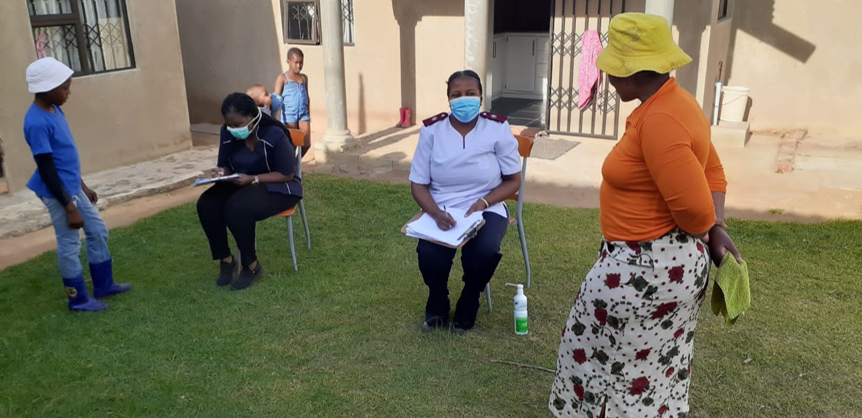Aiyanna James, Technical Officer, EpiC/COVID-19, FHI 360
Rose Wilcher, Knowledge Management Director, LINKAGES & EpiC, FHI 360
As of October 2020, South Africa has the highest recorded number of total cases of COVID-19 and reported deaths from COVID-19 in Africa, and the ninth highest number of cases in the world. On March 23,the South African Government issued a mandatory nationwide lockdown for 21 days to help contain the coronavirus outbreak. The stay-at-home order was heavily enforced and restricted millions of South Africans indoors excepting only health workers, emergency personnel, and security services.
As South Africa entered lockdown, the National Department of Health (NDOH) temporarily halted the provision of nonemergency and elective procedures in all health facilities and turned attention to COVID-19 screening and testing efforts. Among the services suspended was voluntary medical male circumcision (VMMC), a move that freed up 2,205 clinical and nonclinical personnel—who typically work on HIV prevention—for the emergency response to COVID-19.
VMMC is an effective intervention for reducing the risk of HIV acquisition in males aged 15–34 and is prioritized by the NDOH as core strategy for curbing the HIV epidemic in South Africa. Since 2019, the VMMC program of the USAID- and PEPFAR-supported Meeting Targets and Maintaining Epidemic Control (EpiC) project—led by FHI 360 in collaboration with partners Right to Care and John Snow Research and Training Institute (JSI)—has worked with the NDOH to generate demand for and provide quality, client-centered VMMC services in 12 districts.
When VMMC services were halted, the EpiC project quickly pivoted and engaged the VMMC workforce and infrastructure for the country’s door-to-door COVID-19 screening campaign. Nearly 600 VMMC staff, including clinical (medical doctors, clinical associates, and nurses) and nonclinical (HIV lay counselors, data clerks, drivers, and community mobilizers), were trained in the basics of COVID-19 community screening. The training, conducted by the Foundation for Professional Development on behalf of the NDOH, addressed topics such as infection prevention and control procedures, identification of symptoms, and referral pathways for testing.
EpiC’s VMMC community mobilizers joined existing community health workers (CHWs) in the campaign while clinical teams and District Quality Coordinators provided supervision and oversight to ensure all staff were providing services according to protocols and guidelines set forth by the NDOH and World Health Organization. Implementing partners received electronic devices for data entry from USAID and were given permission to use vehicles leased under the EpiC VMMC program for CHWs’ transportation while adhering to social distancing guidelines and infection prevention protocols. All CHWs were able to use branded VMMC uniforms for community identification and given access to personal protective equipment from their respective VMMC sites for use during COVID-19 outreach.
As reported elsewhere, the quick shift from VMMC service provider to the COVID-19 frontlines was not without challenges. Staff experienced initial mistrust from communities, faced shortages of testing supplies, and had to battle misinformation and stigma among community members. But, gradually, the teams made inroads. During April–June 2020, EpiC-supported VMMC providers visited a total of 238,317 households and screened 707,667 individuals. They referred 8,048 individuals who answered “yes” to at least two of the six COVID-19 screening questions for COVID-19 laboratory testing.
Since July, COVID-19 infections in South Africa have fallen sixfold, and VMMC services have resumed. Thanks to the generosity and courage of the EpiC VMMC staff who have long been part of the country’s HIV response, the government was able to engage their leadership to also combat the COVID-19 pandemic in South Africa.

